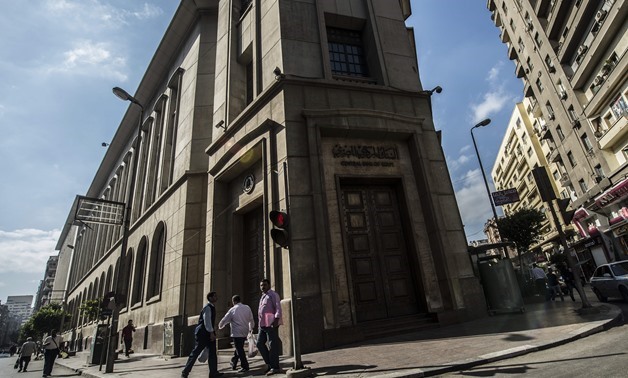
FILE - CBE
CAIRO – 31 March 2020: In the midst of anticipation and trends for monetary easing to confront the spread of coronavirus (COVID-19), the Monetary Policy Committee (MPC) of the Central Bank of Egypt (CBE) is going to meet on April 2, but will it slash the rates again after the 3-percent-cut during its unscheduled meeting on Mar.16?
As an exceptional decision, the MPC of CBE decided, on Mar. 16, to cut the overnight deposit rate, the overnight lending rate, and the rate of the main operation in an emergency meeting by 3 percent or 300 basis points.
This decision comes as a part of actions and measure took by CBE to curb the effect of the virus outbreak; extending the loan maturities for the major companies 6 months without any fines.
Upon this decision, the overnight deposit rate, the overnight lending rate, and the rate of the main operation are cut to reach 9.25 percent, 10.25 percent, and 9.75 percent, respectively. Moreover, credit and discount rates are now at 9.75 percent from 12.75 percent.
MPC commented then that reducing the rates was taken as an exceptional measure, which contributes to supporting economic activity in all sectors, taking into account the future expectations and consistency of inflation with achieving the target inflation rate of ± 9 percent (± 3 percent) during the fourth quarter of 2020.
Egypt’s annual consumer price inflation recorded 4.9 percent in February 2020, compared to 13.9 percent in February 2019, according to the Central Agency for Public Mobilization and Statistics (CAPMAS).
In addition, Egypt’s annual core inflation rate, which discounts or strips out certain categories that are considered more volatile, decreased to 1.9 percent in February 2020, down from 2.7 percent in January 2020.
To clarify, Egypt targets an inflation rate of 10.5 percent in fiscal year of 2019/2020 and was targeting 13 percent in 2018/2019 budget while if the crisis continued until December 2020, inflation rate is expected to increase to 9.8 percent.
CBE’s governor Tarek Amer announced in a TV interview through phone that the state still have scope to lower interest rates more and more in order to stimulate the economy.
Amer further referred to global talks about how Egypt preceded the current conditions by controlling the economy. “Unlike Egypt, pumping loans in Europe has become weak because they have reached the limit of being satisfied and the loan-to-deposit ratio is very high, “Amer said.
On the same note, Middle East and North Africa Economist at Capital Economics James Swanston expected the Central Bank of Egypt to follow up the emergency 300bp rate this month with another 100bp of easing on Thursday with the economic hit from the coronavirus outbreak intensifying.
“With central banks globally loosening policy further since then and inflation pressures in Egypt under control, the CBE is likely to step up its policy support with another 100bp cut in interest rates. And as the full extent of the damage becomes clearer, we expect an additional 125bp of monetary policy easing over the coming months,” Swanston added.
On another note, Head of Research at Pharos Holding Radwa El-Swaify expected CBE to keep the interest rates unchanged at the upcoming monetary policy committee meeting next Thursday.
Swaify said that this meeting comes after the emergency meeting held by the committee in the beginning of March, in which the interest was reduced by 300 basis points to stimulate the economy and reduce the pressure on activities as a result of the decisions of curfew and lockdowns.
She continued that before the Monetary Policy Committee takes any new decision, it will first take into account the market conditions, the impact of the recent interest rate cut, inflation rates and trends in light of what is happening recently.
The macroeconomic and banking sector analyst at HC Securities and Investment Monit Doss agreed with Swaify that CBE will keep the rates unchanged during its coming meeting.
“Despite the decrease in inflation in February, we believe that inflationary pressures will return to the same over the coming months as a result of increased rates of purchasing food and food commodities, following the announcement of the curfew in Egypt and the relative increase in demand during the month of Ramadan.” Doss added.
“We expect monthly inflation to fluctuate at a rate of approximately 1 percent over the remaining months of 2020 to achieve an expected rate of 6.4 percent during the first half of 2020 depending on the positive impact of the base year to reach its maximum at 11.45 percent in December on an annual basis.”

Comments
Leave a Comment